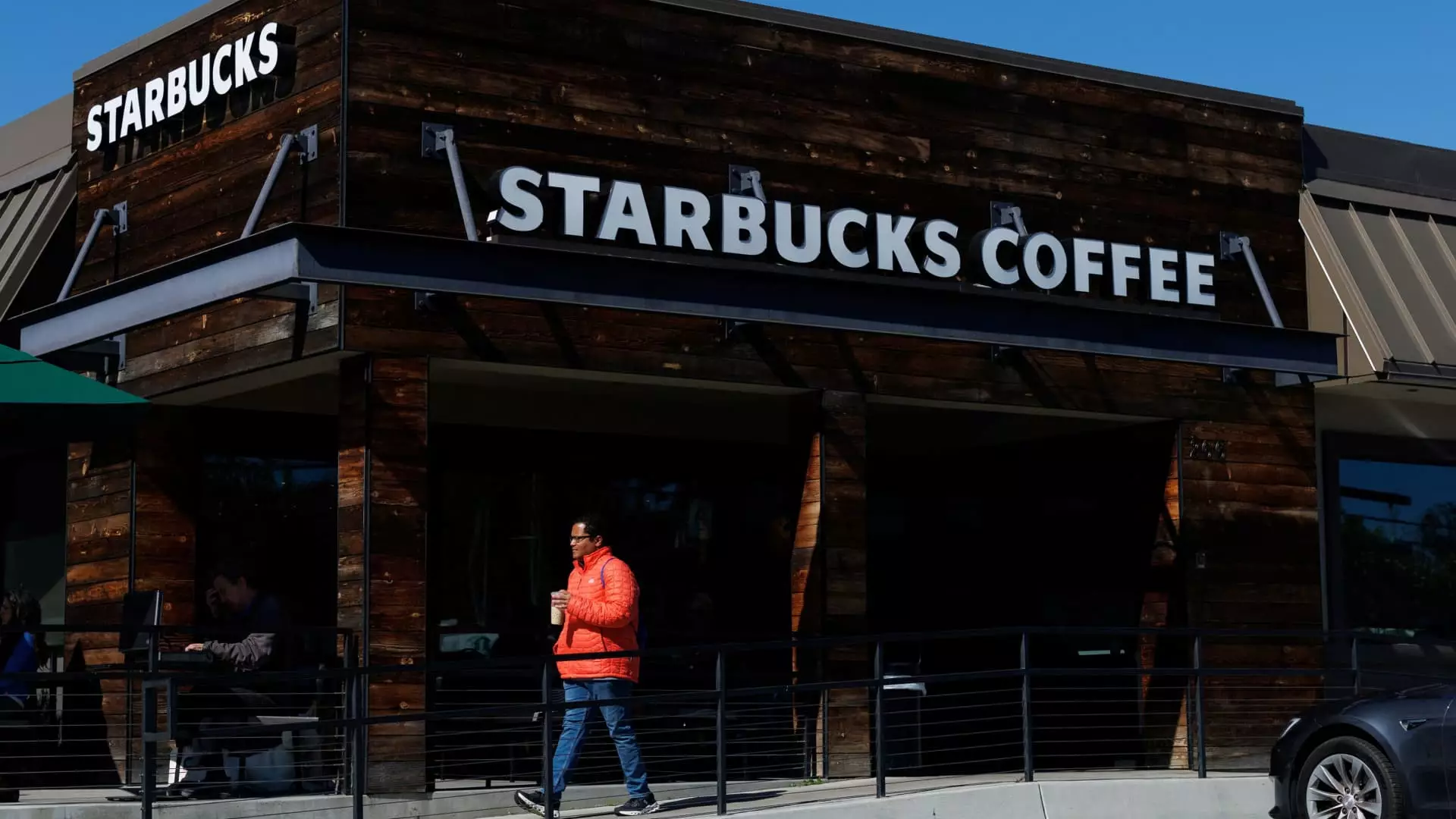As the specter of a potential recession looms over the economic landscape, investor confidence is spiraling into a dangerous abyss. Recent trends reveal a worrying decline in restaurant stocks, driven primarily by heightened fears sparked by President Donald Trump’s unexpected announcement of steep tariffs on imports from major trading partners. This shocking move has sent ripples through Wall Street, causing a trifecta of sell-offs that have left investors reeling. It’s easy to mistake this turmoil as a mere blip in the market, but a closer look reveals that the implications may be far more sinister.
While some analysts, like UBS’s Dennis Geiger, reassure us about the “manageable” direct costs of these tariffs for restaurants, their focus on commodity prices fails to recognize the bigger, more insidious threat—consumer spending. Inflation paves a precarious road that is likely to discourage dining out, thus widening the chasm of economic downturn. The optimism of analysts seems misplaced when confronting the complexities of consumer behavior in challenging economic times.
The Ripple Effects on Major Chains
The impact of this crisis is ubiquitous, as even industry titans like Starbucks are not immune. With stock prices plummeting by more than 3%, the coffee giant finds itself grappling with a convergence of unfavorable factors. Analysts from Baird described the current economic climate as rife with “near-term headwinds,” and the sentiment is palpable. Recent downgrades in stock ratings inject further anxiety into a company already struggling to regain footing in its U.S. market.
Moreover, the economic ripples extend beyond American soil. Starbuck’s international sales face significant challenges, particularly in China, where anti-American sentiment could lead to boycotts. With the recent hike in tariffs on key coffee-exporting nations, the core product is now entangled in complex geopolitics—an unsettling reality for any consumer-facing company. The ramifications could profoundly reshape how we view dining out, especially in the wake of economic strain.
Causal Dining Chains Under Siege
Casual dining chains, often viewed as barometers for consumer confidence, have seen their stocks suffer tremendously. Dine Brands, which operates Applebee’s and IHOP, recorded a nearly 3% drop in shares, while Darden Restaurants and Texas Roadhouse weren’t far behind. The pattern is clear: as economic pressures mount, everyday diners seek to tighten their belts, resulting in a catastrophic domino effect for restaurants that have traditionally thrived.
Fast-casual establishments, once the darlings of the market, are not escaping unscathed. U.S. consumers are pulling back, evidenced in the almost 2% dip for Chipotle and a staggering 3% decline for Wingstop. Even fast-food giants, which typically exhibit resilience during downturns, are feeling the pinch. McDonald’s and Yum Brands are all grappling with reduced traffic—a stark departure from their historical ability to weather economic storms. The argument that Americans will always flock to cheaper meals fails to account for shifting consumer behavior in a volatile economy.
A Silver Lining for Emerging Players
Amid this grim backdrop, a flicker of hope persists with the resilience of newer entrants like Dutch Bros and Cava. With Dutch Bros gaining over 3% in morning trading, the company’s ability to connect with consumers may signal a break in the economic malaise plaguing its more established competitors. Similarly, Domino’s Pizza showing slight gains implies that certain niches within the dining sector could adapt and thrive, even as traditional giants falter.
The potential for these rising brands to flourish in a more conscious marketplace offers a glimmer of optimism, suggesting that consumer preferences may evolve toward experience-driven value rather than simply reacting to economic woes. Shifts in consumer behavior, when harnessed, could lead to exciting possibilities in the restaurant arena, challenging old norms and encouraging culinary innovation.
As we navigate the treacherous waters of today’s economy, the resilience or failure of restaurant stocks serves as an unsettling reminder of the power the market wields over consumer behavior. With investors increasingly anxious about economic conditions, the road ahead for restaurant brands appears fraught with uncertainty. One thing is abundantly clear—this is a pivotal moment for the industry, one that warrants our attention and critical scrutiny as we witness these seismic shifts unfold.


Leave a Reply